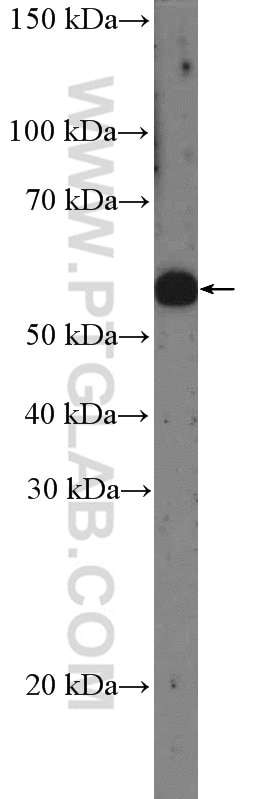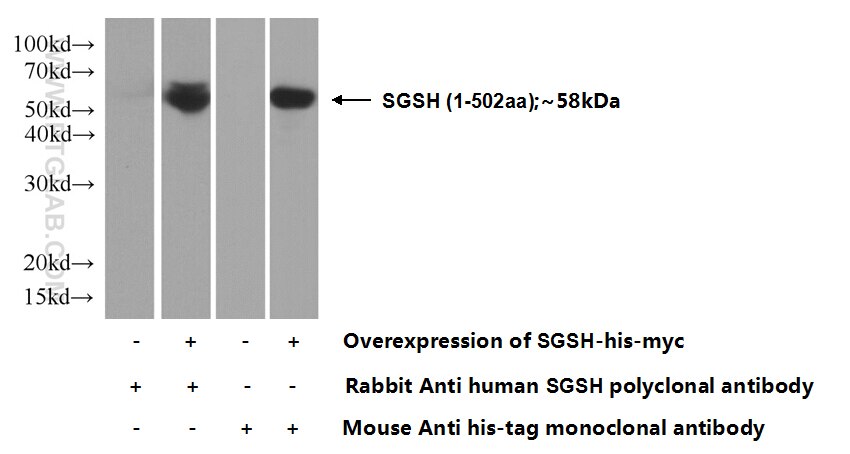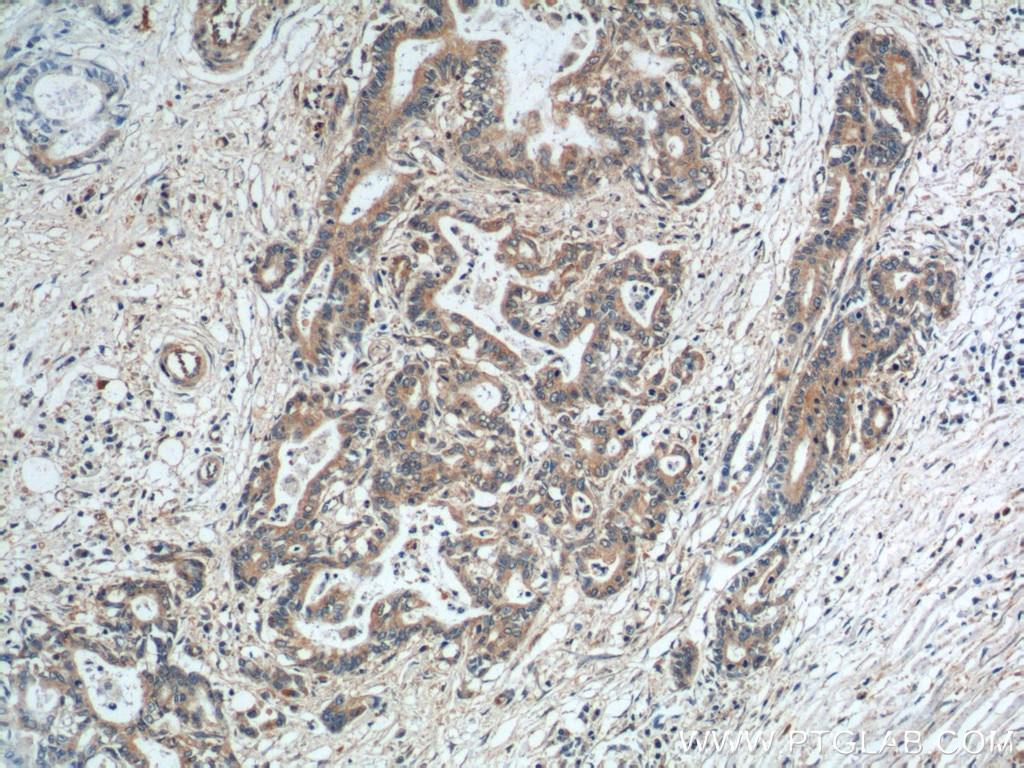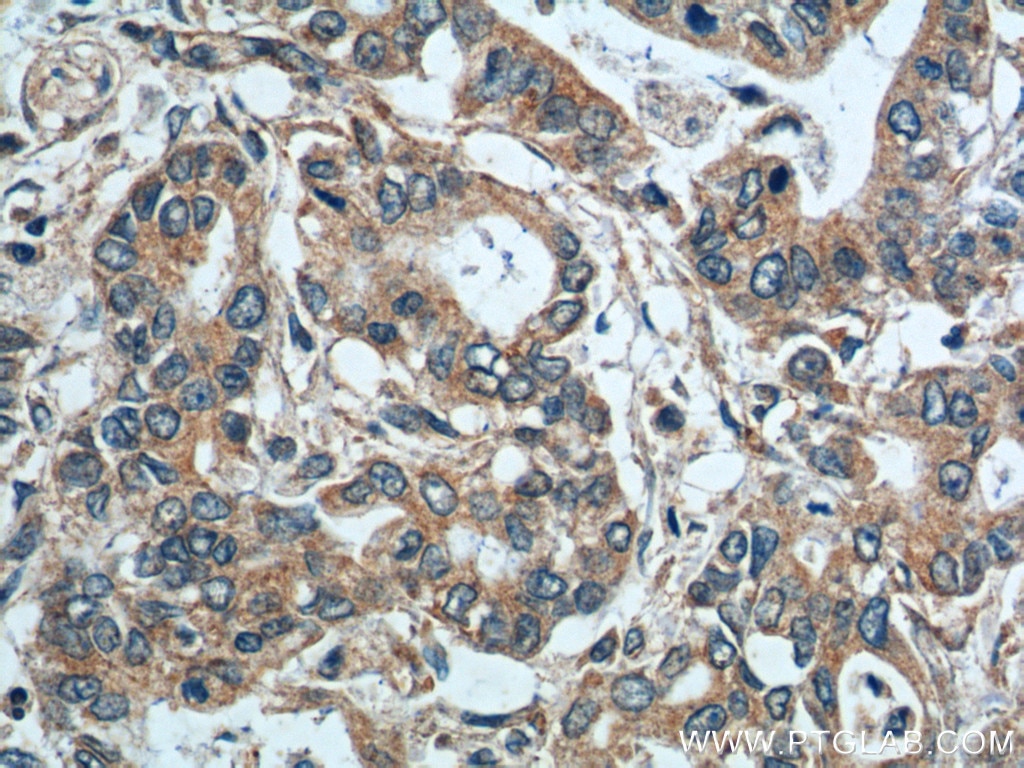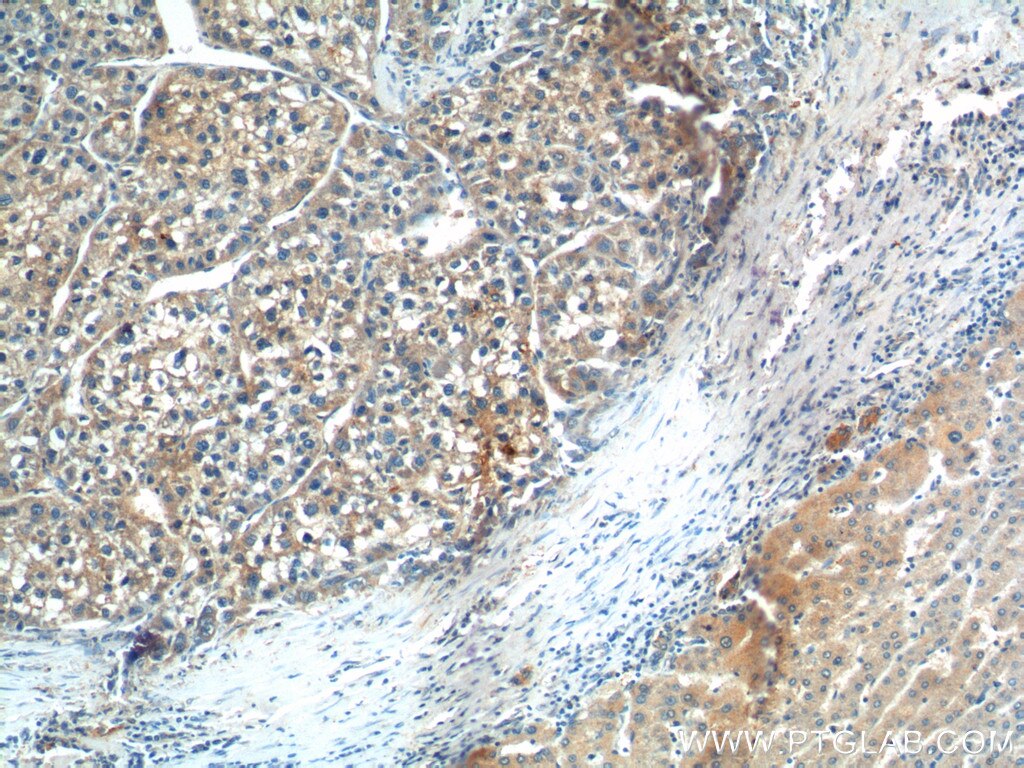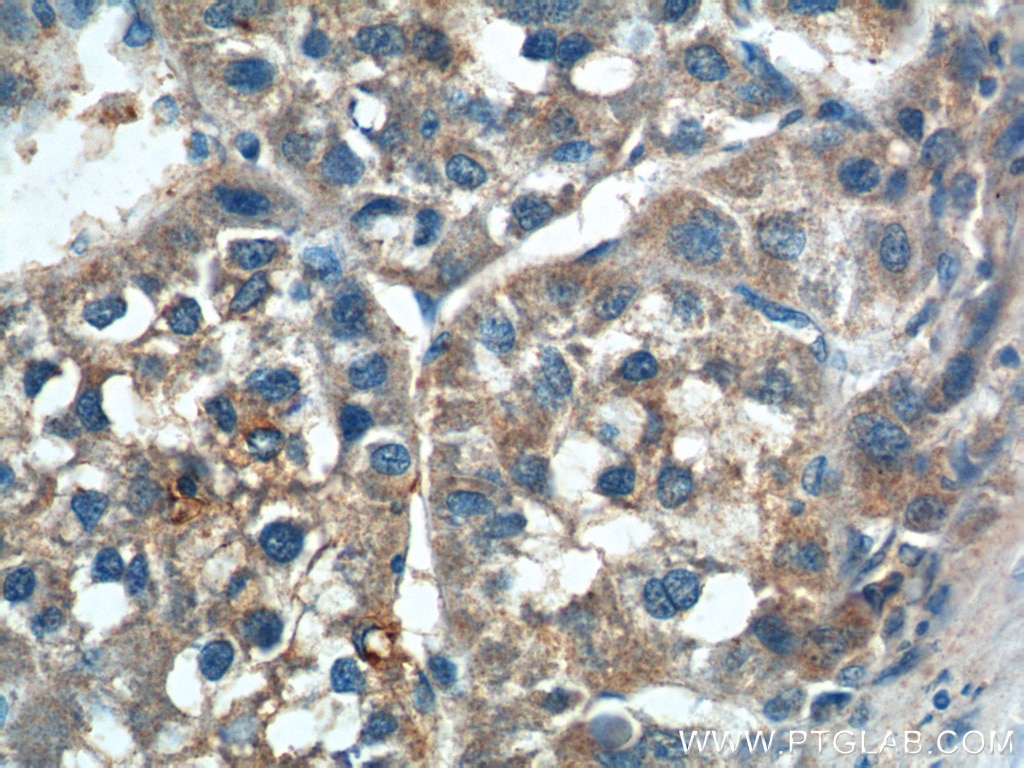Anticorps Polyclonal de lapin anti-SGSH
SGSH Polyclonal Antibody for WB, IHC, ELISA
Hôte / Isotype
Lapin / IgG
Réactivité testée
Humain
Applications
WB, IF, IHC, ELISA
Conjugaison
Non conjugué
N° de cat : 14184-1-AP
Synonymes
Galerie de données de validation
Applications testées
| Résultats positifs en WB | cellules HEK-293, transfectées |
| Résultats positifs en IHC | tissu de cancer du pancréas humain, tissu de cancer du foie humain il est suggéré de démasquer l'antigène avec un tampon de TE buffer pH 9.0; (*) À défaut, 'le démasquage de l'antigène peut être 'effectué avec un tampon citrate pH 6,0. |
Dilution recommandée
| Application | Dilution |
|---|---|
| Western Blot (WB) | WB : 1:500-1:1000 |
| Immunohistochimie (IHC) | IHC : 1:20-1:200 |
| It is recommended that this reagent should be titrated in each testing system to obtain optimal results. | |
| Sample-dependent, check data in validation data gallery | |
Applications publiées
| WB | See 1 publications below |
| IF | See 1 publications below |
Informations sur le produit
14184-1-AP cible SGSH dans les applications de WB, IF, IHC, ELISA et montre une réactivité avec des échantillons Humain
| Réactivité | Humain |
| Réactivité citée | Humain |
| Hôte / Isotype | Lapin / IgG |
| Clonalité | Polyclonal |
| Type | Anticorps |
| Immunogène | SGSH Protéine recombinante Ag5435 |
| Nom complet | N-sulfoglucosamine sulfohydrolase |
| Masse moléculaire calculée | 57 kDa |
| Poids moléculaire observé | 56 kDa |
| Numéro d’acquisition GenBank | BC047318 |
| Symbole du gène | SGSH |
| Identification du gène (NCBI) | 6448 |
| Conjugaison | Non conjugué |
| Forme | Liquide |
| Méthode de purification | Purification par affinité contre l'antigène |
| Tampon de stockage | PBS with 0.02% sodium azide and 50% glycerol |
| Conditions de stockage | Stocker à -20°C. Stable pendant un an après l'expédition. L'aliquotage n'est pas nécessaire pour le stockage à -20oC Les 20ul contiennent 0,1% de BSA. |
Informations générales
SGSH(N-sulphoglucosamine sulphohydrolase) is also named as HSS, sulphamidase and belongs to the sulfatase family. Sulfamidase is synthesized as a 62 kDa precursor protein, which is modified with mannose 6-phosphate (M6P) residues, allowing their recognition by mannose-6-phosphate receptors in the Golgi complex and ensuring transport to the endosomal/lysosomal system(PMID:21671382). It catalyzes the third step of degradation of glucosaminoglycans and is required for the degradation of heparan sulphate. Defects in SGSH are the cause of mucopolysaccharidosis type 3A (MPS3A), also known as Sanfilippo syndrome A.
Protocole
| Product Specific Protocols | |
|---|---|
| WB protocol for SGSH antibody 14184-1-AP | Download protocol |
| IHC protocol for SGSH antibody 14184-1-AP | Download protocol |
| Standard Protocols | |
|---|---|
| Click here to view our Standard Protocols |
